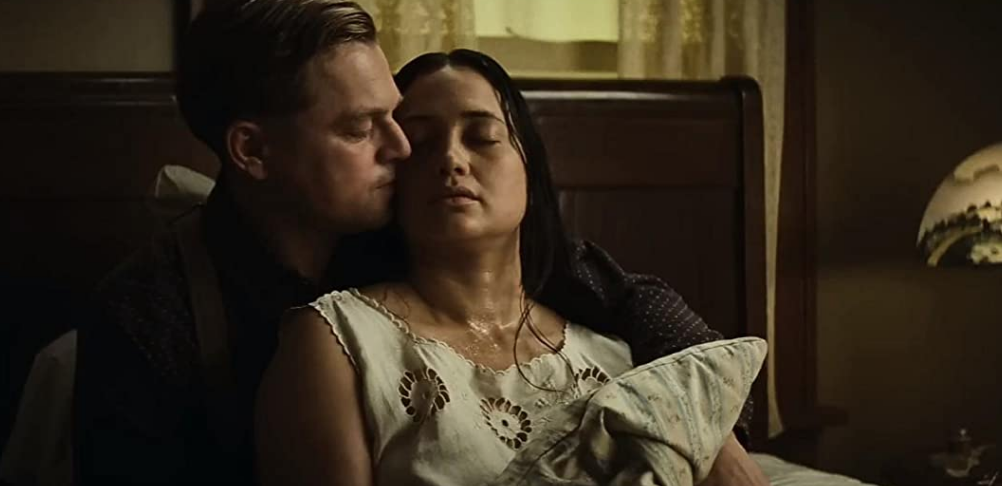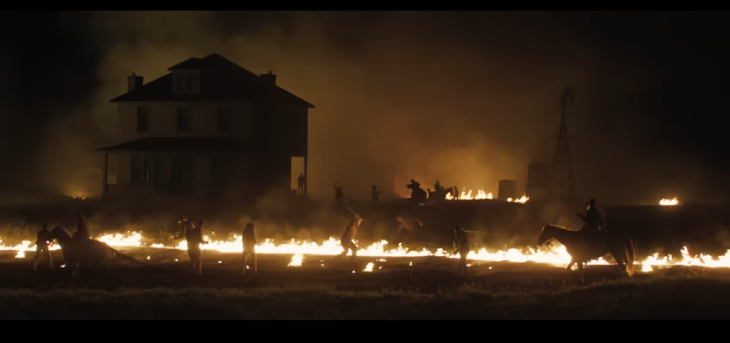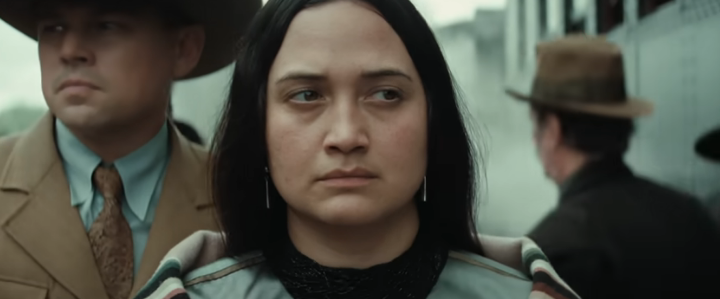Elisa Giudici reporting from Cannes
 Leonardo DiCaprio & Lily Gladstone in "Killers of the Flower Moon"
Leonardo DiCaprio & Lily Gladstone in "Killers of the Flower Moon"
Dear Martin Scorsese, why did you shy away from the main competition for the Palm d’Or? Needless to say, someone with your career and pedigree has almost nothing to lose even when pitted against younger, eager colleagues at a festival. And Killers of the Flower Moon is exactly the kind of movie that is sure to impress. First of all, it is carried with the energy and politics you would expect from someone younger than Scorsese. His trademark intensity is present again. He's ardent to share the forgotten history of how a group of white men in the 1920s orchestrated a slow genocide of the Osage tribe -- at attempt to eradicate them from a land filled with oil. It is not a war but a vicious scheme because the Osage tribe was given the land before its real value was discovered.
As a result, the young USA decides to play nice with the native people, at first, making them immensely wealthy...

Scorsese underlines why: the system itself is rigged, racism and prevarication already calculated in democratic society itself. If justice, health, money, and any kind of power are in the hands of a greedy white man, how can the Osage people make their voices heard?
Killers of the Flower Moon is a tour de force dressed as a western. In the unsettling siege of death (with no hope on the horizon), we understand a lot more than the Osage people about what is happening to their community. The filmmaker faces a considerable dillema given the power players: how to portray this true story in a modern way, without giving white, male characters all of the space available? Scorsese's answer is traditional but unsettling. Murderers and authorities are all white, so this story requires a white savior (from Hoover's FBI no less) to defeat a white traitor after hours of hopeless prevarication. The essence of the movie is to show how the system dooms the Osage tribe. But the "saving" isn't stain-free as conspicuous sums of money change hands.
The most winning choice within this brutal story is to put Mollie Burkhart (Lily Gladstone) at the center. Mollie Burkhart is an austere, wise, lovable woman who faces every type of betrayal one can imagine. Her family members are killed, one by one, while her husband Ernest (Leonardo DiCaprio) tries to “slow her down”.

Scorsese demonstrates the gaslighting process in extensive detail. While Ernest doesn't raise a finger against Mollie, his manipulation is abhorrent. DiCaprio, gifted with a different kind of role than Scorsese usually gives him, does fine work. Despite being a mean man, Ernest persuades himself that he is a good father and husband. He is also the worst kind of fool: one who doesn’t understand he is a pawn just like his victims. DiCaprio and De Niro’s cinematic duet is predictably amazing (and the principal source of the dry, black humor of the movie), but Gladstone is exemplary in her role, able to convey sorrow and desperation in a dignified way. (Too dignified? Mollie might be the product of a male screenwriter imagining an honorable woman). She runs away with the picture. Outshining De Niro and DiCaprio in a Scorsese film is the kind of achievement that should make Oscar buzz start immediately.
Is Killers of the Flower Moon a masterpiece? I think it is not. Still it's a strong movie from a director who finds fuel for indignation in this forgotten story of injustice in his home country. White businessmen act suspiciously like members of criminal organizations, within the Western setting, making this a perfect story for this auteur. There is only one major complaint here: Although the extreme length is surely intentional, some bits in the middle of the movie don't add much or cohere and could have easily been cut. How can someone with Scorsese's ear, have the courage to ask him to cut just a little from his films?
Killers of the Flower Moon appeared Out of Competition at Cannes. It opens in US movie theaters on October 20th.
Other Cannes 2023 Reviews
- Strange Way of Life (short from Almodóvar)
- Jeanne Du Barry (opening film)
- A Brighter Tomorrow (competition film)
- Indiana Jones and the Dial of Destiny (out of competition)